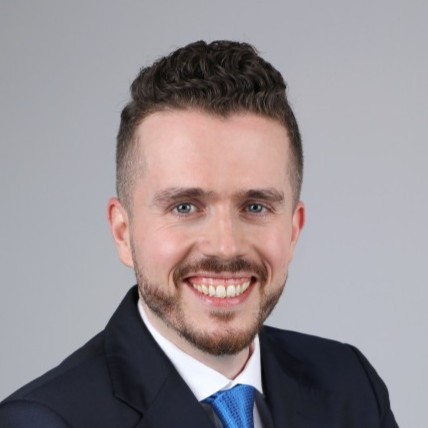
01 May Security Middle East Conference: the topics
Our panel discussions will cover three key topics which we believe to be critical to the industry right now: addressing Saudi Arabia’s talent gap within the security sector; securing Saudi Vision 2030; and resiliency in the age of digitisation.
Securing Saudi Vision 2030
The over-arching aim for Saudi Vision 2030 is to diversify Saudi Arabia’s economy away from oil and gas and instead establish it as a digital leader. With a massive $1 trillion worth of new projects, some 555,000 new jobs have been realised. A five-year strategic roadmap was set to create 1.8 million new jobs, following a minimum investment of $40bn a year between 2020 and 2025. Riyadh has been marked as a leading business and start-up hub in the MENA region, helping to attract multi-national corporations and global businesses to establish regional HQs in the area.
Key to Saudi Vision 2030 is the development of a number of GIGA projects. This includes Neom, a Public Investment Fund(PIF) project. The ambitious plan is for Neom to offer exceptional liveability, thriving business opportunities and to reinvent conservation. Another PIF-project is Quiddya, which aims to establish itself as a leading global tourist destination.
Data is integral to Saudi Vision 2030 and with the efforts being made in smart city developments the threat landscape is constantly evolving.
Our panellists for discussions on securing Saudi Vision 2030areCraig Ross, Senior Safety & Security Manager, Diriyah Gate Development Authority; Dr. Mohammad Alketbi, Founder, Forceis Security and Advisory Board Member for Intersec Dubai; Dr. Mohammed Aladalah, Tech Security Expert; and Wissam Accra, Middle East Sales Director, Genetec. They’ll be debating how to navigate this threat landscape successfully, sharing insights gained from their decades of experience. Professor Borhen Marzougui, who has led multiple programmes to develop Smart Cities vision, will be moderating.
Addressing the talent gap
While Saudi Vision 2030 initiatives and GIGA projects along with other PIF-funded projects are helping to create a growing number of opportunities within the Saudi Arabia job market, there is still a significant talent gap within the security sector that needs to be addressed. The Kingdom is doing its part to make sure the local work force can compete on a global scale with a forward-looking approach designed to create a human resources strategy to address this talent gap and build skills – particularly those needed for the thriving digital economy. Skills development is a key part of Saudi Vision 2030 planning. It focuses on improving professional capacities, with a particular focus on young talent: the future of Saudi Arabia.
Through broadening knowledge and encouraging skills growth, it aims to prepare younger generations for the future and ensure they’re suitably equipped to spot and act on emerging opportunities. Cultivating a pipeline of talent will require both investment in the local workforce to ensure they’re well equipped with skills and knowledge, as well as attracting and retaining employees from a worldwide pool of top talent. A survey from KPMG underlined the challenges in finding candidates with both the business expertise and the technical expertise for key roles – such as those in the security industry. Forty one per cent of the survey respondents said that a shortage of talent was a key challenge when it came to integrating emerging technologies into business plans.
Our panel discussion on Saudi Arabia’s talent gap will be moderated by Luke Bencie of Security Management International and will include contributions from Nadeem Iqbal, Middle East Regional Director for the International Federation for Protection Officers; Khalid Al Ghamdi, CEO – NOMD Security Solutions; and Ahmed Alshammari, Security Operations Lead – Royal Commission for Al Ula. We’ll be looking at how the talent gap can be addressed, how top talent can be retained and the importance of upskilling the workforce to align with the Saudi Vision 2030 programme.
Resiliency in the age of digitisation
On today’s digital world of massive computing capacity, fast-evolving artificial intelligence and machine learning and big data, we’re seeing more and more service disruptions and cyber attacks as companies look to expand their digital capabilities. The need for resiliency in the age of digitisation has never been greater.
Saudi’s digital transformation has been swift and world-leading, supported by Saudi Vision 2030. For example, the Global Cybersecurity Index of the International Telecommunication Union ranked Saudi Arabia as sixth among the G20 nations: the Kingdom expanded connectivity to 3.5 million homes by 2020 –up from 1.2m homes in 2017. Digital transformation is set to be an ongoing national priority beyond what is set out in Saudi Vision 2030.
According to research from Oxford Economics and Huawei, the digital economy will account for approximately 24% of global GDP and Saudi is determined to be at the heart of this transition. Already we see government services being transformed by harnessing digital technology, the country is embracing new technologies like AI and a National Government Digital Academy has been established.
Technology is being seamlessly blended into the country at all levels, and now it’s time to ensure the country is forward-thinking, resilient and agile in its response to threats.
We know that resilience will become a fundamental driver for businesses’ digital transformation and vital in the cybersecurity arena, but how can we ensure resiliency is embedded at every level of an organisation? Led and moderated by Daniel Norman from the Information Security Forum, our cybersecurity panel will be discussing how to achieve resiliency. We’ll be joined by Ibrahim Al-Asaker, Saudi Chapter Lead – Cloud Security Alliance; Dr. Faisal Abdulaziz Alfouzan, Assistant Professor in Cybersecurity & Networks; Khalid Saad Al Medbel, General Director Information Security, Ministry of Health; and James Connolly, Middle East Director, Darktrace.

